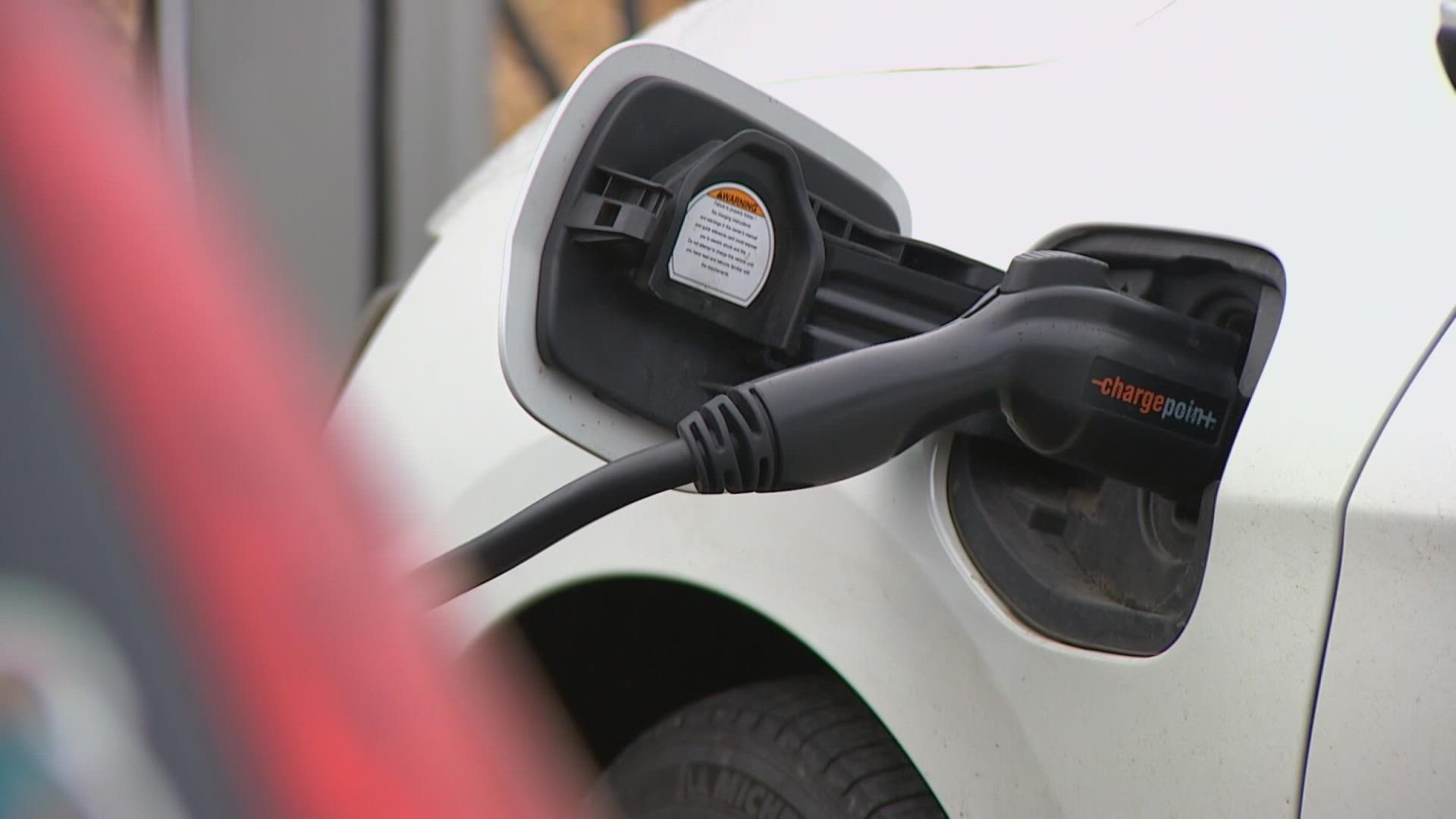BELLINGHAM, Wash. — The City of Bellingham is expanding the number of electric vehicle charging stations, but officials say drivers will pay to get charged.
Bellingham resident Barb Schickler is one of nearly 67,000 electric car owners in Washington, according to the Department of Energy.
"I love my electric car," she said. "I wouldn't be without it!"
Washington has the second most electric vehicles per capita in the United States, second only to California.
Many EV owners have grown accustomed to charging their cars for free at grocery stores or public charging stations.
Now, though, Bellingham is making people pay.
"Nothing in life is free," said Bellingham Public Works Director Eric Johnston, "but it's still cheaper than gas and better for the environment."
Drivers will now pay 25 cents per kilowatt hour -- that's about $2 for a full tank of electricity for you average electric car -- plus 75 cents an hour to park.
For high speed charging stations it's an additional $1 per hour.
According to the city of Bellingham, a driver at a standard charging spot would spend $3.60 for two hours -- gaining 42 miles of range. The cost for gasoline would be about double that.
Some argue that forcing people to "pay to plug" when they can do it for free elsewhere might keep EV owners from coming downtown.
But the Sniders, traveling from Bainbridge to Blaine for the New Year's holiday, specifically stopped in Bellingham to recharge.
"We knew we were going to come here, spend a couple hours, shop, have lunch maybe go to the museum," said Dawn Snider. "We're just going to enjoy Bellingham."
The city is currently building 45 charging stations in 25 locations spread across Bellingham. There will be a total of 90 plug-ins.
The project is funded by a state grant and $500,000 from a sales tax increase approved by Bellingham voters for green transportation.
Barb Schickler would like to see the project expand.
"The demand is out there. The infrastructure just needs to catch up. That is the problem," she said. "We need more electric charging stations."
The city hopes to do that, at some point.
Revenue from the stations will pay for the electricity they use, along with maintenance, upgrades and possible expansion.
The 45 new units stations are expected to be operational in the spring.

